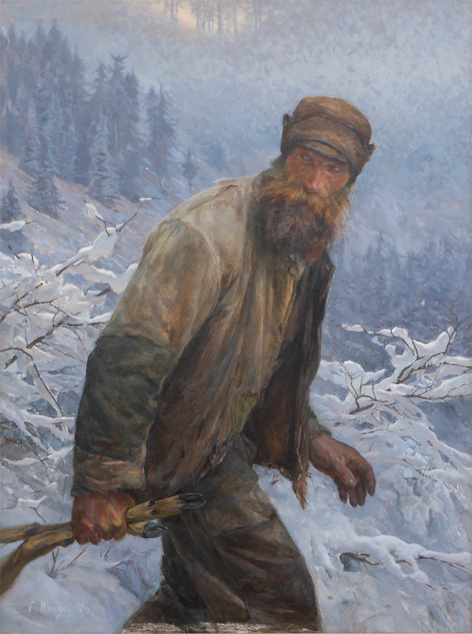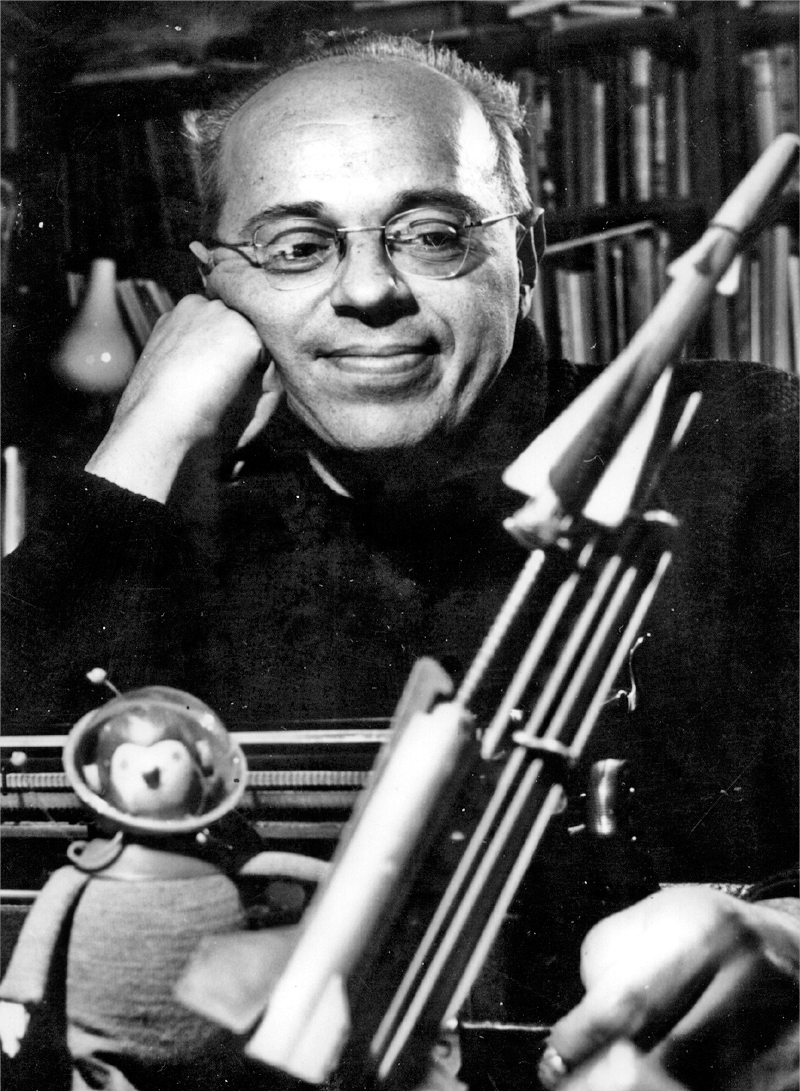|
Jakub Wędrowycz
Jakub Wędrowycz is the protagonist of a number of short stories by Andrzej Pilipiuk, a Poland, Polish science fiction and fantasy writer. Wędrowycz is an antihero, an elderly alcoholic, moonshine producer, poacher, amateur exorcism, exorcist and fighter against all sorts of supernatural forces dwelling around his village, from Extraterrestrial life, aliens to vampires, demons and devils, as well as more mundane threats such as Russian mafia, policemen and tax inspectors. Wędrowycz debuted in a short story published in 1996, and has been featured in dozens of short stories and several book anthologies. With time, Wędrowycz became the most easily recognizable characters of Pilipiuk's speculative fiction and humorous prose, as well as one of the icons of modern Polish pop culture. Many official illustrations of Wędrowycz, particularly for the books, have been done by Polish illustrator . Fictional character biography Wędrowycz lives in Stary Majdan, Gmina Wojsławice, in a ... [...More Info...] [...Related Items...] OR: [Wikipedia] [Google] [Baidu] |
Pyrkon 2018 Jakub Wędrowycz Cosplay
Multigenre Fan Convention Pyrkon (pol. ''Festiwal Fantastyki Pyrkon'') (commonly known as Pyrkon) is a Polish fan convention held annually in Poznań on the first weekend after the equinox, spring equinox and dedicated to an integration of Science fiction fandom and a promotion of science-fiction/fantasy literature, comics, film, television, video games, Role-playing game, RPG, Live action role-playing game, LARP, board games, collectible card games and miniature wargaming. Pyrkon is the biggest event of this type in Poland and one of the biggest in Europe (over 55,000 people in 2022). History Pyrkon has been held by the Second Age Science fiction fandom, Science Fiction Club (''Klub Fantastyki "Druga Era"'') every year since 2000, except 2005 when they held Polcon. (In 2011 they organised both Pyrkon and Polcon.) Pyrkon has been a non-profit convention from its beginning, and all organizers, lecturers and gofers are volunteers. Initially Pyrkon was held at the Dębiec dis ... [...More Info...] [...Related Items...] OR: [Wikipedia] [Google] [Baidu] |
Poaching
Poaching has been defined as the illegal hunting or capturing of wild animals, usually associated with land use rights. Poaching was once performed by impoverished peasants for subsistence purposes and to supplement meager diets. It was set against the hunting privileges of nobility and territorial rulers. Since the 1980s, the term "poaching" has also been used to refer to the illegal harvesting of wild plant species. In agricultural terms, the term 'poaching' is also applied to the loss of soils or grass by the damaging action of feet of livestock, which can affect availability of productive land, water pollution through increased runoff and welfare issues for cattle. Stealing livestock as in cattle raiding classifies as theft, not as poaching. The United Nations' Sustainable Development Goal 15 enshrines the sustainable use of all wildlife. It targets the taking of action on dealing with poaching and trafficking of protected species of flora and fauna to ensure their avail ... [...More Info...] [...Related Items...] OR: [Wikipedia] [Google] [Baidu] |
Fictional Exorcists
Fiction is any creative work, chiefly any narrative work, portraying individuals, events, or places that are imaginary, or in ways that are imaginary. Fictional portrayals are thus inconsistent with history, fact, or plausibility. In a traditional narrow sense, "fiction" refers to written narratives in prose often referring specifically to novels, novellas, and short stories. More broadly, however, fiction encompasses imaginary narratives expressed in any medium, including not just writings but also live theatrical performances, films, television programs, radio dramas, comics, role-playing games, and video games. Definition Typically, the fictionality of a work is publicly marketed and so the audience expects the work to deviate in some ways from the real world rather than presenting, for instance, only factually accurate portrayals or characters who are actual people. Because fiction is generally understood to not fully adhere to the real world, the themes and context of ... [...More Info...] [...Related Items...] OR: [Wikipedia] [Google] [Baidu] |
Fictional Alcohol Abusers
Fiction is any creative work, chiefly any narrative work, portraying individuals, events, or places that are imaginary, or in ways that are imaginary. Fictional portrayals are thus inconsistent with history, fact, or plausibility. In a traditional narrow sense, "fiction" refers to written narratives in prose often referring specifically to novels, novellas, and short stories. More broadly, however, fiction encompasses imaginary narratives expressed in any medium, including not just writings but also live theatrical performances, films, television programs, radio dramas, comics, role-playing games, and video games. Definition Typically, the fictionality of a work is publicly marketed and so the audience expects the work to deviate in some ways from the real world rather than presenting, for instance, only factually accurate portrayals or characters who are actual people. Because fiction is generally understood to not fully adhere to the real world, the themes and context of ... [...More Info...] [...Related Items...] OR: [Wikipedia] [Google] [Baidu] |
Fenix (magazine)
''Fenix'' was a Polish science fiction magazine published from 1990 to 2001. It was the first privately owned magazine in the country. It was created by Jarosław Grzędowicz, Krzysztof Sokołowski, Rafał A. Ziemkiewicz, Andrzej Łaski and Dariusz Zientalak jr. The magazine was reactivated in literary and critical anthology form in 2018 by Bartek Biedrzycki (Polish s-f and comic writer and publisher) and Sokołowski under the name ''Fenix Antologia'' with official approval from Grzędowicz. About Fenix was created as a continuation of ''Feniks'' fanzine, which ran for 8 issues winning the European SF Awards in 1987 for best zine. The magazine was published at first by Radwan, then since 1991 by Prószyński i Spółka, and from 2000 to 2001 by Wydawnictwo Mag, after which date the publication was suspended until 2018. From the beginning to 1993 Rafał A. Ziemkiewicz was the editor in chief, later on replaced by Jarosław Grzędowicz. The 2018 ''Fenix Antologia'' run ... [...More Info...] [...Related Items...] OR: [Wikipedia] [Google] [Baidu] |
PTTK
''Polskie Towarzystwo Turystyczno-Krajoznawcze'', PTTK (Polish Tourist and Sightseeing Society) is a Polish non-governmental tourist organization with 312 branches across the country. The PTTK is one of the oldest tourist societies in Europe. Its origins stretch back to the foreign Partitions of Poland. In August 1873 a group of tourism enthusiasts including painter and photographer Walery Eljasz Radzikowski from Kraków and physician Tytus Chałubiński founded the Polish cultural Tatra Society (''Polskie Towarzystwo Tatrzańskie'', originally the "Galician" Tatra Society for the Austrian censorship). A parallel Polish Sightseeing Society (''Polskie Towarzystwo Krajoznawcze'') was founded by ethnographer Zygmunt Gloger in 1906. The two organizations merged after World War II in 1950 to form the PTTK. Current Operations The Society aims to promote qualified tourism and sightseeing. Its activities include designing and marking tourist trails as well as cycling, horse and ... [...More Info...] [...Related Items...] OR: [Wikipedia] [Google] [Baidu] |
Wojsławice, Lublin Voivodeship
Wojsławice is a village in Chełm County, Lublin Voivodeship, in eastern Poland. It is the seat of the gmina (administrative district) called Gmina Wojsławice. It lies approximately south of Chełm and south-east of the regional capital Lublin. The village is a common setting of many literary works by Polish writer Andrzej Pilipiuk, in particular, related to his fictional character Jakub Wędrowycz, who lives in the nearby village of Stary Majdan, Gmina Wojsławice, Stary Majdan. Since 2006, an annual fandom convention dedicated to has been taking place in Wojsławice, and a 3-meter tall wooden statue of the character has been raised in 2013. References Villages in Chełm County Ruthenian Voivodeship Kholm Governorate Lublin Voivodeship (1919–1939) {{Chełm-geo-stub ... [...More Info...] [...Related Items...] OR: [Wikipedia] [Google] [Baidu] |
Collectible Card Game
A collectible card game (CCG), also called a trading card game (TCG) among other names, is a type of card game that mixes strategy game, strategic deck building elements with features of trading cards, introduced with ''Magic: The Gathering'' in 1993. Generally a Player (game), player may begin playing a CCG with a pre-made Booster pack#Starter deck, starter deck, and then customize their deck with a random assortment of cards acquired through booster packs, or from trading with other players, building up their own library of cards. As a player obtains more cards, they may create new decks from scratch from their library. Players are challenged to construct a deck within limits set by the CCG's rules that will allow them to outlast decks constructed by other players. Games are commonly played between two players, though Multiplayer game, multiplayer formats are also common. Gameplay in CCG is typically turn-based, with each player starting with a shuffled deck and on their turn, ... [...More Info...] [...Related Items...] OR: [Wikipedia] [Google] [Baidu] |
The Witcher
''The Witcher'' ( pl, Wiedźmin ) is a series of six fantasy novels and 15 short stories written by Polish author Andrzej Sapkowski. The series revolves around the eponymous "witcher", Geralt of Rivia. In Sapkowski's works, "witchers" are beast hunters who develop supernatural abilities at a young age to battle wild beasts and monsters. ''The Witcher'' began with a titular 1986 short story that Sapkowski entered into a competition held by ''Fantastyka'' magazine, marking his debut as an author. Due to reader demand, Sapkowski wrote 14 more stories before starting a series of novels in 1994. Known as ''The Witcher Saga'', he wrote one book a year until the fifth and final installment in 1999. A standalone prequel novel, ''Season of Storms'', was published in 2013. The books have been described as having a cult following in Poland and Central and Eastern European countries. They have been translated into 37 languages and sold over 15 million copies worldwide as of December 2019. ... [...More Info...] [...Related Items...] OR: [Wikipedia] [Google] [Baidu] |
Geralt Of Rivia
Geralt of Rivia ( pl, Geralt z Rivii) is a fiction Fiction is any creative work, chiefly any narrative work, portraying individuals, events, or places that are imaginary, or in ways that are imaginary. Fictional portrayals are thus inconsistent with history, fact, or plausibility. In a traditi ...al Character (arts), character and the protagonist of ''The Witcher'' series of short stories and novels by Polish author Andrzej Sapkowski. He is a magically enhanced monster-hunter known as a "witcher", who possesses supernatural abilities due to his mutations. He was described by Péter Apor as a character embodying "the neo-liberal anti-politics" spirit of Polish popular culture of the 1990s, following his debut in the books. Geralt of Rivia is also the protagonist in CD Projekt Red's The Witcher (video game series), series of video games based on ''The Witcher''. In television adaptations, he was portrayed by Michał Żebrowski in ''The Hexer (film), The Hexer'' film and televi ... [...More Info...] [...Related Items...] OR: [Wikipedia] [Google] [Baidu] |
Andrzej Sapkowski
Andrzej Sapkowski (; born 21 June 1948) is a Polish fantasy writer, essayist, translator and a trained economist. He is best known for his six-volume series of books ''The Witcher'', which revolves around the eponymous "witcher," a monster-hunter, Geralt of Rivia. It began with the publication of ''Blood of Elves'' (1994) and was completed with the publication of standalone prequel novel ''Season of Storms'' (2013). The saga has been popularised through television, cinema, stage, comic books, computer games and translated into 37 languages making him the second most-translated Polish science fiction and fantasy writer after Stanisław Lem. He was born in Łódź and initially pursued a career as an economist after graduating from the University of Łódź. He turned to writing, first as a translator and later as an author of fantasy books, following the success of his first short story ''The Witcher'' published in 1986 in the ''Fantastyka'' magazine. Described as the "Polish To ... [...More Info...] [...Related Items...] OR: [Wikipedia] [Google] [Baidu] |
Polish Science Fiction And Fantasy
Science fiction and fantasy in Poland dates to the late 18th century. During the latter years of the People's Republic of Poland, a very popular genre of science fiction was social science fiction. Later, many other genres gained prominence. Poland has many science-fiction writers. Internationally, the best known Polish science-fiction writer is the late Stanisław Lem. As elsewhere, Polish science fiction is closely related to the genres of fantasy, horror and others. While many English-language writers have been translated into Polish, relatively little Polish-language science fiction (or fantasy) has been translated into English. History Science fiction in Poland started in the late 18th century during the Polish Enlightenment, when Michał Dymitr Krajewski wrote a novel about the adventures of a Pole on the Moon. In the mid-19th century, during the age of romanticism in Poland, Adam Mickiewicz, reckoned by many to be Poland's top poet, also worked on a Verne-like ... [...More Info...] [...Related Items...] OR: [Wikipedia] [Google] [Baidu] |






